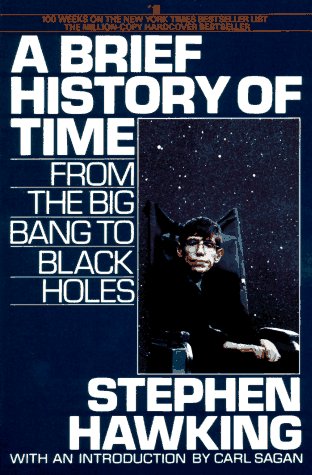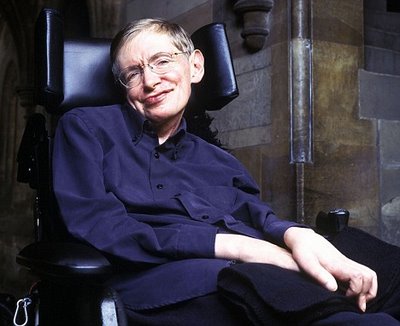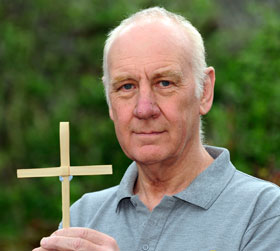 Stephen Hawking, perhaps one of the world’s smartest living humans, has overstepped his field of expertise.
Stephen Hawking, perhaps one of the world’s smartest living humans, has overstepped his field of expertise.
He’s the bestselling author of A Brief History of Time. He predicted that black holes should emit what today is regarded as “Hawking radiation.” His scientific accomplishments have included explaining the complexities of gravitational singularities within the framework of general relativity. He is pursuing a goal that evaded Albert Einstein – a unified theory, the “Theory of Everything.”
Now, Hawking has told England’s Guardian newspaper that “there is no heaven.” He makes the claim in the May 15, 2011 edition.
It is worth noting that Hawking has some deep biases on this subject. And let us not forget that Hawking’s been wrong before.
Stanford University physicist Leonard Susskind not so long ago disproved Hawking’s adamant contention that, when black holes disappear, they take along with them all information that ever existed inside them. On July 22, 2004, Hawking had to concede to hundreds of colleagues at the 17th International Conference on General Relativity and Gravitation in Dublin that Susskind was right.
And then there is Hawking’s embrace of string theory – certainly not accepted by everyone in his field.

Nor should Hawking be taken so seriously on topics he knows nothing about, writes John Horgan in Scientific American magazine. He says Hawking is less a scientist and more a “cosmic, comic performance artist, who loves goofing on his fellow physicists and the rest of us.”
Horgan recalls how in 1980, the University of Cambridge named Hawking as the “Lucasian Professor of Mathematics,” an honor held three centuries earlier by Sir Isaac Newton.
“Many would have been cowed into caution by such an honor,” writes Horgan.
Not Hawking, who “slyly suggested that, given the ‘rapid rate of development’ of computers, they might soon become so smart that they ‘take over altogether’ in physics.
“So maybe the end is in sight for theoretical physicists,” Hawking said.
“This line was clearly intended as a poke in his colleagues’ ribs,” writes Horgan. Wouldn’t it be ironic if our mindless machines usurped our place as discoverers of Cosmic Truth? Hilarious!
“The famous last line of Hawking’s monumental bestseller A Brief History of Time was also a joke,” writes Horgan, “although many people didn’t get it at the time.
“’A final theory of physics,’ Hawking declared, ‘would be the ultimate triumph of human reason – for then we should know the mind of God.’”
Hawking was pulling our leg, says Horgan. Deep inside the book, “Hawking showed his true colors,” as he discussed his dream of a unified theory.
“What place, then, for a creator?” Hawking asked. There is no place, he replied, “a final theory would eliminate the need for a God, a creator, a designer.”

“Hawking’s first wife, a devout Christian, knew what he was up to,” writes Horgan. “After she and Hawking divorced in the early 1990s, she revealed that one of the reasons was his scorn for religion.”
So, Hawking has now taken up theology – although he has no credentials in the subject, but instead biases so deep that they undermined his marriage.
Hawking made this week’s controversial comments apparently to promote the upcoming Google Zeitgeist meeting in London, where he will address the question: “Why are we here?” Again, he has no professional standing in the subject – just a deep bias and a predictable thesis.
In April, Pope Benedict XIV warned the faithful of the folly of thinking that technology could replace the Almighty. For this, the Pontiff was roundly criticized by those who said he should stick to religion.
It works both ways.
Stephen Hawking needs to stick to math and leave matters of faith to those who have the insight he sorely lacks, that personal experience of a loving, guiding, providing, protecting God.
So, there is no heaven? Well … maybe not for you, Stephen.

